Brothers and business partners Alex and Graeme MacDonald are building a winery business around the family name. MacDonald Vineyards, situated in Oakville at the heart of Napa Valley, neighbors Robert Mondavi Winery. Their 15 acres, famously known as part of the historical To Kalon (or To-Kalon) land, is one of the most recognized — and valued — parcels in Napa Valley. The MacDonalds, who grew up in Mill Valley, are bottling wines using their name for their brand and in the process, writing a new chapter in the history of their family’s esteemed property.
Your family’s land in Napa is at the heart of your business. What is your origin story?
Alex: We went to Napa almost every weekend. The property there comes down from our mom’s side, the Hortons. It’s this incredible matriarchal line. Our grandma, Gabriele Horton (the daughter of Richard and Hedwig Detert), ran the vineyard when our grandpa died, with the help of Bob Mondavi. When you are little, you don’t even notice that there are vines. It was our playground. I remember her saying to me at some point, “Oh, it would be wonderful if you guys would make wine from the property.” And here we are.
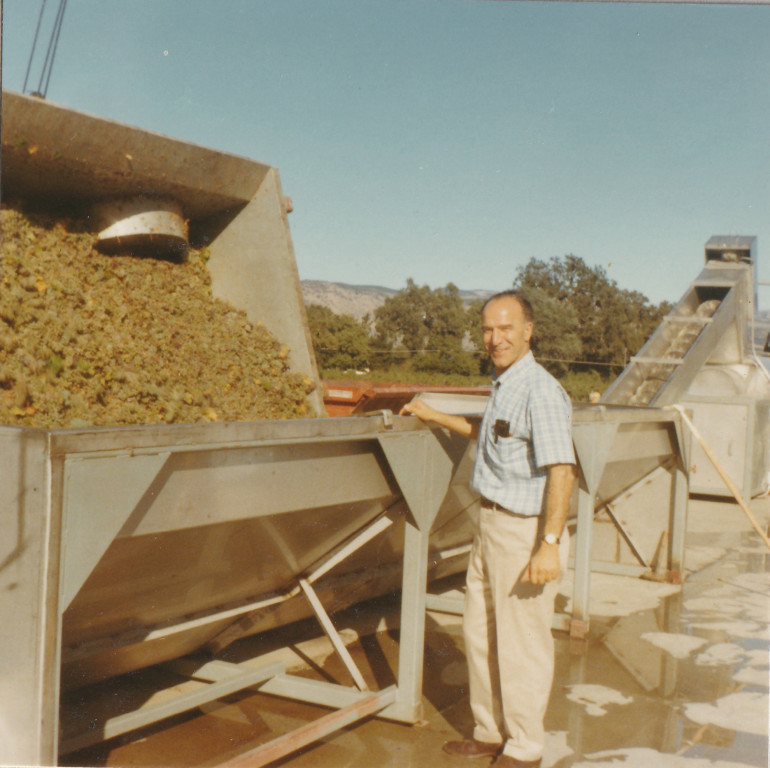
What is your Mondavi story?
Graeme: When the family first purchased the property as a place for our great-grandparents to retire in 1954, we did not realize there was anything special about it. When the Mondavis had their big split (in 1965), our grandmother gave half the grapes to Bob and half to Peter, Solomon-like, which pissed both of them off. Grandma described Bob as a rocket and you just hold on. Marguerite (Mondavi, Bob’s wife) was the sophistication. Bob was into the business but Marguerite changed how Americans think about wine.
The location of your grandparents’ acreage is exceptional. How did you handle the transition to make your own wine?
Alex: When our great-grandparents, Richard and Hedwig Detert, bought the property and the 30 acres around the house, Bob Mondavi came to them and said, “If you plant this to a vineyard, I would buy all the grapes.” A handshake deal for a three-year contract led to my family selling grapes to the Mondavis for over 50 years. It was the reason for so much loyalty between our family and the Mondavis. In 2004, Mondavi sold to Constellation. Graeme was two years into Davis.
Graeme: Before the Mondavi sale, I wanted to go over to Mondavi and taste the family juice. I said I was Mrs. Horton’s grandson and remember being at the barrels and tasting with Geneviève (Janssens, Chief Winemaker at Mondavi since 1997), asking: what do our grapes add to the Mondavi product? Geneviève said, “Your family vineyard is my favorite block out of everything we own.” It was an ‘a-ha’ moment for me. We have something really special here. I approached the family about getting some grapes to experiment with winemaking. Our family was against it. They didn’t want to rock the boat. So Alex and I thought about it and went back and said we would pay the same rate as Mondavi and make sure it was ok with Mondavi. Geneviève was supportive of our passion for making wine from the family vineyard.
But you were still at college.
Graeme: The first year we got grapes, I fermented them in my dorm room at UC Davis, which made me not very popular with my roommates. We were trying to figure out the style of wine we wanted to make. We made 30 gallons of home wine.
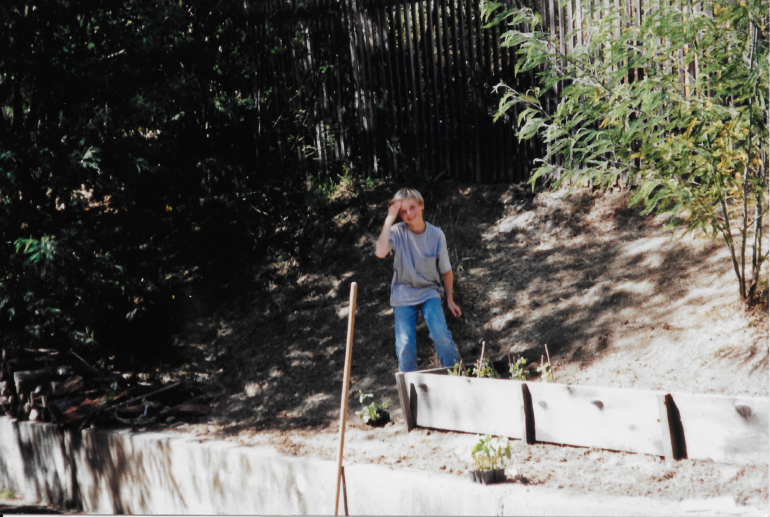
Did you already know you wanted to be in the wine business?
Graeme: My first passion was farming and that started on our parents’ property at the house we grew up in, in Mill Valley. I usurped the garden when I was a kid. It kept me out of the house, but it could be overwhelming. My mom was very generous but not always enthusiastic. By 16, I knew wanted to be a winemaker. We went to school (Old Mill, Mill Valley Middle School, and Tam High) with the kid whose family owns Escalle Winery in Larkspur. Wine has a great heritage in Marin. I was interested in planting a home vineyard of 50 vines in Mill Valley. Around that time, I read Jay McInerney’s book, Bacchus and Me: Adventures in the Wine Cellar, and there was a chapter about Sean Thackrey in Bolinas. It opened my eyes. I started to ask questions when I went to grandma’s house.
Was there a turning point for you, Alex?
Alex: Graeme was definitely ahead of the game — he went to Davis and was working in Napa and realized how unique our family property was. He thought he could run the farm and I could do the sales and marketing since we complement each other so well. When we started, we knew we needed to want the same thing. We knew what happened with the Mondavis. Everything we do we discuss and do together.
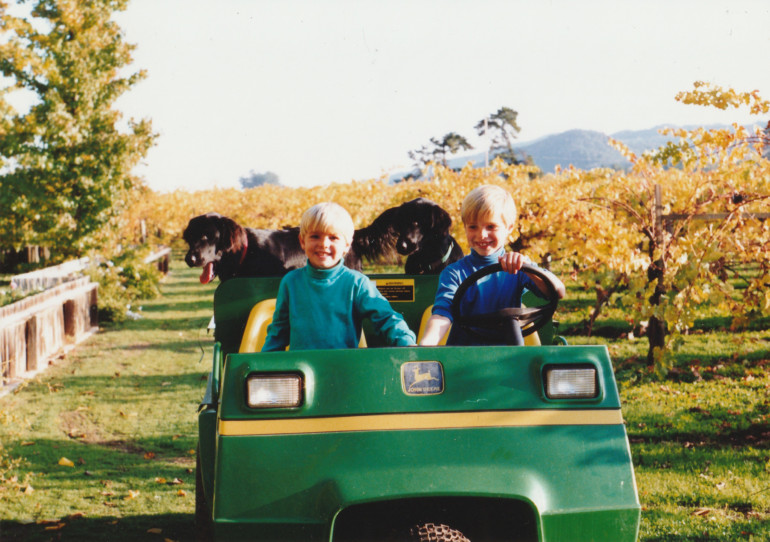
A Marin childhood with summers on a Napa farm seems idyllic.
Graeme: We were lucky to grow up with access to nature. It has so heavily influenced us. Marin has this incredible history and fascination with agriculture. My wife, Sarah, has a quote from an old Mennonite book on farming, “You don’t start raising a child at birth, but 100 years before they are born, as then is the start of shaping what they are born into.” It’s not just about me and Alex, but generations. Bob Mondavi said our great-grandfather cared about farming when no one cared, that he was the best farmer in Napa. I am a farmer from a humble family who is lucky to have property in Napa. There is no dotcom story — use it or lose it.
Alex: One of things we hear a lot about is the barrier to entry of starting your own wine in Napa. Our approach was to try and do something that we love. That allows you to build more success if you measure in happiness.
How did you handle the transition to becoming MacDonald Winery?
Alex: By 2008, Graeme had been experimenting for four years. We formed an LLC thinking if it fails, we will still be in our mid-20s and we can figure out what to do next. We both worked different jobs in wine, including at Mondavi, and we learned a lot doing tours and sales, managing wine clubs and making wine. Our ultimate philosophy was to make wine we wanted to drink. We now have five acres of our 15 to make ourselves.
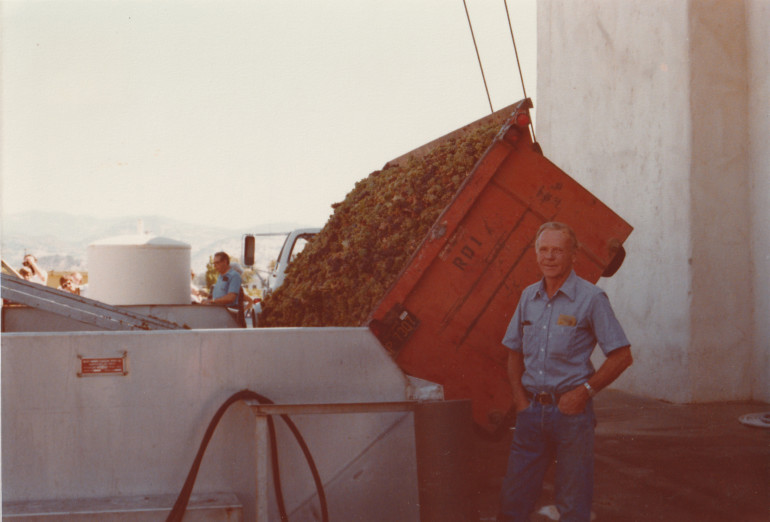
Will you be able to use the To Kalon name?
Graeme: There is a Carmelite monastery next door to the house and I was talking to one of the monks who discovered the phrase in the Greek bible. There is a chapter where Jesus performs his first miracle of turning water into wine, but the second wine he created and referred to as “most beautiful.” That was To Kalon.
Alex: Mondavi used our grapes in his estate wines all these years. It was Estate-designated for Mondavi. Some of those wines are ninety percent from our site. There is a creek on property named To Kalon. Though you are not supposed to trademark a place name, they trademarked To Kalon. There was a fight in 2000 and there is another fight now.
What happens now?
Graeme: We had a talk a while back with Constellation. They offered us licensing rights so could put To Kalon on the label but asked us to give up the creek name which is on the national registry. We said no. Our integrity is not for sale.
Alex: Ninety-nine percent of people in the business of wine look at To Kalon as a vineyard and a place but Constellation is pushing it as a brand. That’s pushing a conversation in California winemaking as it removes the sense of place.
How do you describe your wines?
Graeme: My fascination is in the farming. You don’t need to control anything if the viticulture is right. Doing less makes the wine taste more like a place. I really wanted to farm as close to nature as possible to capture the vitality of our location. There is a weightlessness, a freshness and an intensity on the finish. We are also influenced by the classic Mondavi wines and by their vineyard design. We are not knocking anyone down with power.
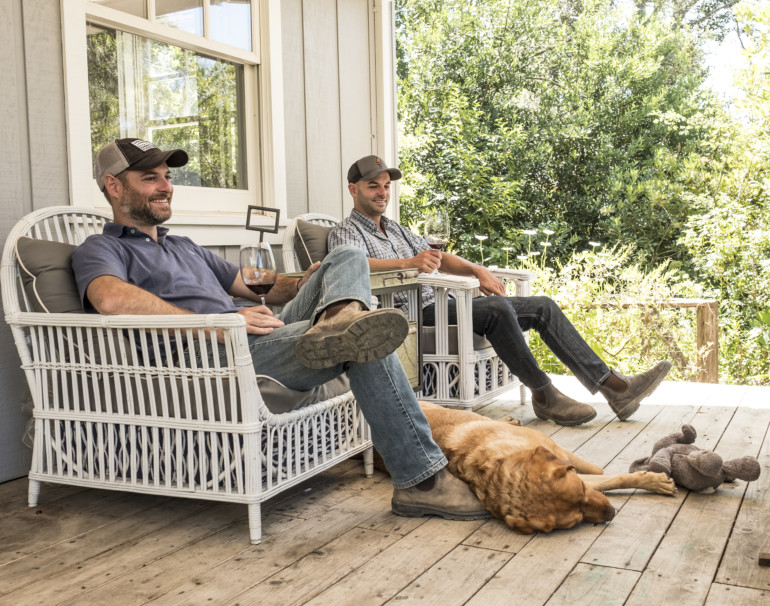
What’s next for MacDonald Winery?
Alex: The end of 2021 is the end of our contract with Mondavi. We are entirely self-funded with no investors or loans out. We always bought only what we could afford. Our first commercial release was 2010. It was 92 cases total. We try to hold back about 5 to 10 cases each year for our personal library to follow the wine as they continue to age but the rest is offered to our mailing list. The 2018 vintage will be around 500 cases and released later this year. We have been slightly increasing production each year but plan to stay around 500 cases or slightly increase in 2021.
The more corporate approach that is now prevalent with Constellation shifts our sense of the relationship. We want to work with people that share our philosophies. Our land is organically farmed and the only parcel around that is. There is plenty of interest in getting grapes from that land. We need to figure out who we want to work with and for the right reasons. Everything we make is touched by us. It is a family thing.
Graeme: Our size and growth is dictated by what we can do ourselves and the other big question is how do we navigate our philosophical integrity and maintain relationships? How do we pass this on to the next generation? We were doing something very different. We farm our vineyard like an orchard. It looks way more natural. It is a farm. I was really worried about how we compete with the wealth in the valley with all our assets in the land but I am a firm believer that if you drive your own tractor, your wine will be better than all of those.
MacDonald wines are available at Mill Valley Market and via their mailing list.
How to Help
For more ways to support local businesses, go here.
For more on Marin:
- Political Strategist, Organizer, Author and Marin Native Alicia Garza on What it Takes to Create Change
- This Month in Marijuana: What We’re Eating, Smoking, Dropping and Drinking in January
- Tackle Home Organizing For Real This Year — 3 Bay Area Professional Organizers Share Their Best Tips
 Christina Mueller is a long-time Bay Area food writer. She hails from the East Coast and has spent way too much time in South America and Europe. She discovered her talent as a wordsmith in college and her love of all things epicurean in grad school. She has written for Condé Nast Contract Publishing, Sunset, and the Marin Independent Journal, among others. She volunteers with California State Parks and at her child’s school, and supports the Marin Audubon Society, PEN America, and Planned Parenthood. When she is not drinking wine by a fire, she is known to spend time with her extended family.
Christina Mueller is a long-time Bay Area food writer. She hails from the East Coast and has spent way too much time in South America and Europe. She discovered her talent as a wordsmith in college and her love of all things epicurean in grad school. She has written for Condé Nast Contract Publishing, Sunset, and the Marin Independent Journal, among others. She volunteers with California State Parks and at her child’s school, and supports the Marin Audubon Society, PEN America, and Planned Parenthood. When she is not drinking wine by a fire, she is known to spend time with her extended family.

